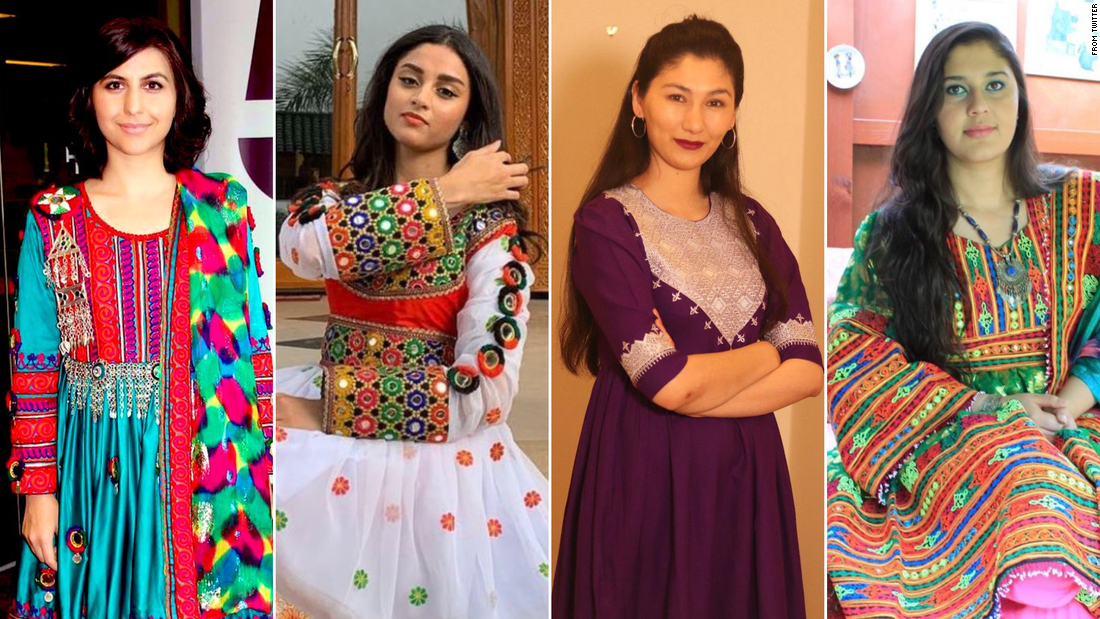
In recent days, the Taliban have ordered gender segregation in classrooms and said students, teachers and employees must wear hijabs in accordance with the group’s interpretation of Sharia law.
Photographs of a group of students wearing black robes from head to toe and waving Taliban flags in the classroom of a government university in Kabul appeared on Saturday.
Other Afghan women responded by posting photographs of themselves in bright, showy traditional Afghan dresses, a stark contrast to the Taliban’s black hijab mandate.
According to her LinkedIn, Bahar Jalali, a former professor at the American University of Afghanistan, helped start the image publishing campaign, according to other women who shared photos on Twitter.
Jalali-ha’s tweet an image of a woman in a full black dress and veil and said, “No woman has ever dressed like this in the history of Afghanistan. This is totally strange and alien to Afghan culture. I posted my photo with the traditional Afghan dress to inform, educate and dispel the misinformation that the Taliban is spreading. ”
Other Afghan women soon followed suit on social media.
Waslat Hasrat-Nazimi, head of DW News’ Afghan service,
has tweeted a photo of him with traditional Afghan dress and headdress with the comment: “This is Afghan culture and that’s how Afghan women dress.”
Sana Safi, a prominent London-based BBC journalist,
posted a photo of herself in a colorful traditional dress, with an additional comment that said, “If I were in Afghanistan, I would have the scarf on my head. That’s as ‘conservative’ and ‘traditional’ as I can get.”
Sodaba Haidare, another BBC journalist,
dit: “this is our traditional dress. We love the colors. Even our rice is showy and so is our flag.”
And Peymana Assad, a local politician from the United Kingdom who is originally from Afghanistan,
said in a post that: “Our cultural dress is not the demented dress that the Taliban wear for women.”
Shekiba Teimori, an Afghan singer and activist who fled Kabul last month, told CNN that “hijab existed before the fall of Kabul. We could see hijabi women, but that was based on family decisions and not on government.” .
He said that before the Taliban arrived in Afghanistan, their ancestors “wore the same colorful Afghan clothes you see in my pictures.”
The fate of women in Afghanistan has been a major concern since the Taliban quickly took control of the country after the chaotic withdrawal of US and international troops in August.
The Taliban, who ruled Afghanistan from 1996 to 2001 but were forced into power after a U.S.-led invasion, have historically treated women as second-class citizens, subjecting them to violence, forced marriages. and an almost invisible presence in the country.
After reclaiming the country’s capital last month, the Taliban leadership said it would not apply these draconian conditions this time. But the absence of female representatives from her newly formed interim government and the almost overnight disappearance of women from the country’s streets has caused great concern about what will happen to half of its population.
.Source
Related
